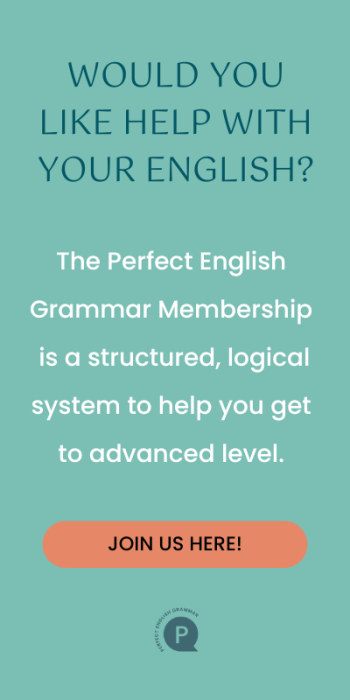Also called the future progressive tense
The future continuous tense isn't taught very much in English classes but, in fact, English speakers use it a lot. You will sound much more natural if you master this tense.
Click here to download this explanation as a pdf.
Click here to learn about how to USE this tense.
Here's how to make it:
The positive (will + be + verb-ing):
At 10 am tomorrow,
- I will be sleeping
- you will be working
- she will be studying
- it will be raining
- he will be cooking
- we will be eating breakfast
- they will be travelling
In the same way as with the future simple, usually we use the short form ('ll be verb-ing) when we are speaking.
Sometimes students don't use the short form, because they are not sure how to pronounce it. Here are some examples to help.
- I'll be sleeping.
- You'll be working.
- She'll be studying.
- It'll be raining.
- He'll be cooking.
- We'll be eating breakfast.
- They'll be travelling.
Here's an exercise about making the future continuous positive.
Here's the negative:
When John gets home,
- I will not be working (I won't be ..)
- you will not be reading (you won't be ..)
- he will not be cooking (he won't be ..)
- she will not be studying (she won't be ..)
- it will not be snowing (it won't be ..)
- we will not be watching TV (we won't be ..)
- they will not be sleeping (they won't be ..)
As with the positive, we usually use the short form (won't + be + verb-ing) when speaking.
Here's an exercise to practise the negative.
Next, the question.
'Yes / no' questions:
When she arrives at the party,
- will I be cooking?
- will you be dancing?
- will she be singing?
- will he be eating?
- will we be drinking?
- will it be snowing?
- will they be talking?
'Wh' questions:
Next weekend,
- what will I be doing?
- where will you be working?
- how will she be travelling?
- what will he be eating?
- why will we be studying?
- why will it be snowing?
- what will they be wearing?
Here's an exercise about 'yes / no' and 'wh' questions.

